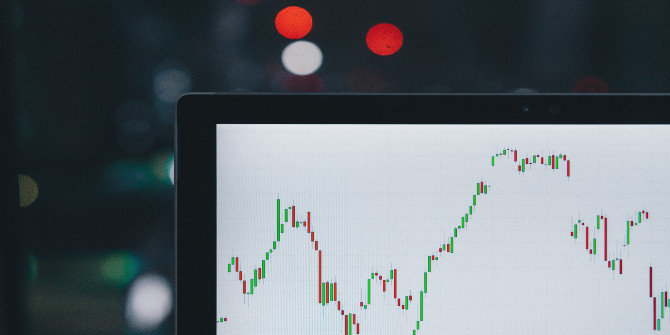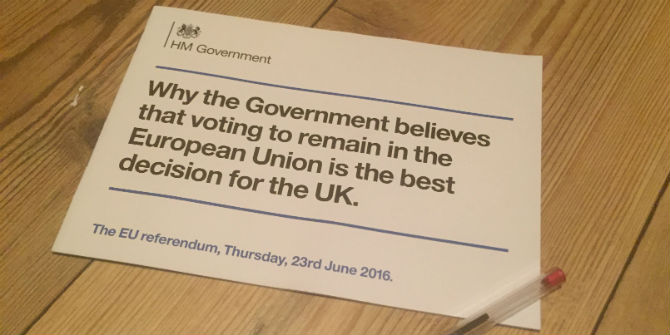As an academic and a political activist and parliamentary candidate, Faiza Shaheen is well placed to understand both the theory and practice of how change happens in society. In this Q&A with Mike Wilkerson, she discusses the realisations that spurred her to enter politics and why real change rarely starts from within the institutions of power.
How do you define change and where it happens? Is it something that can emerge from activism in broader society, or does it always require a connection to authorities or people with the power to set policy?
There’s different types of change. Sometimes it is just getting people to be more aware, with a petition, for instance. Getting the public to notice an issue is often the first step because, too often, the people in government aren’t interested until you’ve made a big noise about things.
If, ultimately, you want to see a policy, legal or legislative change, you have to be very clear about your demands. I wouldn’t dismiss any small change along the way, but you do need to have a sense of where you want to get to, what you want to see at the end of the process.
I’ve been working on inequality for over 20 years now and when I first started working on economic inequality, people didn’t really care about it. It wasn’t an issue. The senior economist at the think tank I was working at even used to say: “inequality doesn’t matter”.
Over the last 20 years that’s completely shifted: there is so much more attention now and people understand the issue. We have more anger about inequality, we have more academic papers about it, more books about it. But actually, for the most part, in terms of policies, we’ve seen it go in the opposite direction and inequality has grown. We have to reflect and be honest about what’s gone wrong. Perhaps, despite lots of public awareness, lots of public anger, it wasn’t clear enough what policies we were demanding. Or perhaps this anger was co-opted. So you’ve got to think strategically – to know what you’re trying to do and where you’re trying to get to and anticipate attempts to undermine your arguments.
How can we enact long-term change in a political system with a government that changes every four or five years (or even more frequently, looking at the UK’s recent political past)?
There is a big problem with the fact that people are often elected for four or five years and they’ll have their own agenda. They want to be remembered for something and that often doesn’t match up with what needs to be done in the world. I think public pressure is the key thing.
In Ireland, for instance, achieving abortion and marriage equality rights was done through public conversations and through activism, because sometimes, even if politicians agree, they don’t want to be seen to be the face of it because they’re scared of a backlash. And that takes a lot of effort from movements over time to try to push them and move the consensus.
For that legislative change, you need those movements, those conversations, that commitment over years, and then you also need to push for it at the right time – when there’s people in government that are onside to act on it. So it’s not impossible to work within the system, but it does take a lot of effort from civil society essentially, because change rarely comes from the top.
It’s not impossible to work within the system, but it does take a lot of effort from civil society essentially, because change rarely comes from the top.
Once you’ve made the argument, done the work on the ground, done the testing around what it can look like – you need to wait for the right moment to have that broader societal change. But you don’t always know when that’s going to come. It might feel like we’re so far away from change and then suddenly, a window opens.
How do you think public attitudes to protest and campaigning have changed in recent years?
Data show that protest has increased since 2006. Between 2006 and 2020, protests around the world tripled. You can imagine why: there was BlackLivesMatter, the financial crisis and the Occupy movement… as well as anti-mask protests – it is not always progressive but people are more willing to take to the streets because of a universal sense of anger and frustration. And it’s not just a UK or a US issue, this is the case wherever you look. And often these protests are about frustrations with failures of democracy or government.
Of course, you want that protest to then convert into real change – but I think the degree to which that is bringing about enough change is questionable. I’ve done some work over the last few years with some of the Arab region countries that had revolutions. In Tunisia, many people went out and joined those protests but now feel like the country is in a worse state than before. Then people end up being even more despondent because they’ve built up all this hope. But in Colombia, it did result in a different government being elected. So, it can go both ways.
LSE IQ Podcast
How do you see the relationship between formalised party politics and social movements when it comes to bringing about change?
I think change usually happens when movements come together, pushing for action and putting pressure on governments. Too often, the people in government aren’t necessarily connected to social movements. They are much more connected to vested interests or business. And so you need the outside pressure, and then you need some insiders that are willing to take on these issues within a legislative process and be that voice within these formal areas, even if it’s uncomfortable. You do need both.
That’s why it’s so important to have a healthy civil society. The reason there are such crackdowns on civil society in some parts of the world is because of the power it holds – and here we’re also seeing efforts to curtail protest.
Is there a privilege to being able to change things? Does education, class and background affect the level of change and impact you can have?
It definitely feels like that now. I think just having time to get involved in things is such a luxury when you’re really struggling with money and you’re working two jobs. But I think also it’s important to note that historically and still now, there are ways in which working class people make the most change, for example by organising and striking in the workplace – like we saw with cleaners in hospitals who managed to stop outsourcing and achieve greater rights. But it takes a lot of courage and effort to bring people together.
People sometimes talk about “change-makers” or inspirational individuals – but the reality is that grassroots change comes from many people, from collective effort. Joining a community is what gives you power.
People sometimes talk about “change-makers” or inspirational individuals – but the reality is that grassroots change comes from many people
And we might want to point to individuals in history that have made a difference. But when you look into their stories, they are held up by a movement that got there because other people came around and organised. Me winning my selection for the Labour Party was actually a real group effort. I didn’t make all the calls on my own. I didn’t come up with the strategy on my own. It was done with local party members. So I think while it feels like, yes, there’s some privileged people in positions who have lots of time, I think whatever you can do in the time that you have to be part of a community can lead to the kind of change and collective change that we need to see.
Did your own path into politics involve finding a community in this way?
I’ve always been an outsider – I grew up in a working-class household in East London. When I went to Oxford, I was shocked by the entitlement and the privilege and the money that people had – that some people have a sense of being born to rule almost. I just got more and more angry about the inequality.
And then I joined up with other people who had similar frustrations along the way. I hadn’t thought about running to be an MP until 2017, which is when I was approached by some local people to consider running. And because the MP I’m running against, Iain Duncan Smith, had brought in a lot of welfare changes that had affected my mum’s life, it’s very personal for me.
How do you think others can feel inspired and empowered to try to make a difference in this way?
The first thing is ideology. Too many people in power are still wedded to an ideology that justifies inequality and corporate greed. So energy companies make record profits while others have to choose between heating and eating.
We need people with different ideologies in power. And we need to teach economics in a different way. I know some of that shift has happened since the financial crisis. You know, instead of making everyone think it’s just about how much money you’re going to make, that the most ambitious thing anyone can do is to try to change the world. I get into this in my book Know Your Place, which is about how you don’t know your place and you fight the system!
in some ways we’ve come so far from when I was told by my boss that no-one cares about inequality. In some ways it’s been a huge shift. And I do feel more confident when I speak to a lot of younger people today who recognise that if they don’t fight, then the futures is bleak. I mean, there’s only one option and that is to fight. Otherwise we’re just accepting things as they are. And how can we accept this?
This post is an edited and abridged version of an interview conducted for “Can we change the world” episode of the LSE’s IQ Podcast. You can listen to the full podcast episode here.
All articles posted on this blog give the views of the author(s), and not the position of LSE British Politics and Policy, nor of the London School of Economics and Political Science.
Image credit: Vincenzo Lullo / Shutterstock.com







